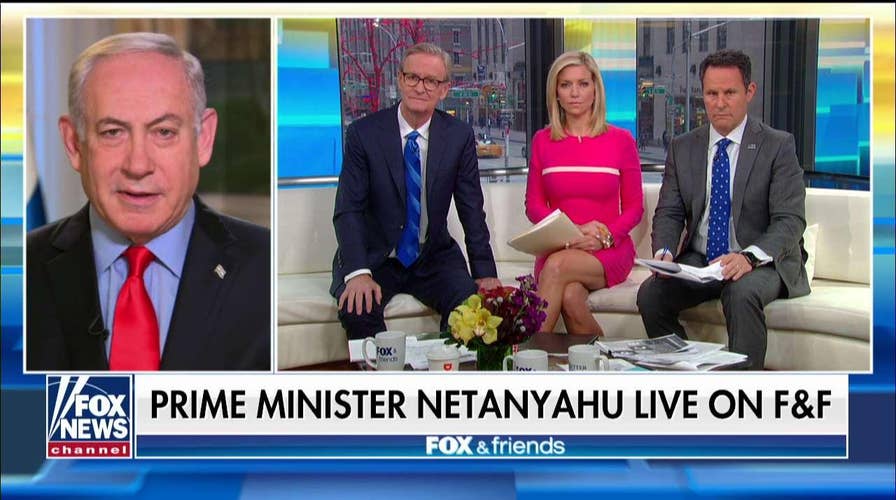Israel on Wednesday delayed plans to annex large parts of the West Bank, following Prime Minister Benjamin Netanyahu’s vow to act on President Trump’s Middle East peace plan meant to end decades of conflict between Israelis and the Palestinians.
Netanyahu had said the Cabinet would vote Sunday on extending Israeli sovereignty to dozens of Jewish settlements, a move that risks provoking a backlash from the Palestinians and the international community. But he appears to have put that on hold to explore the legal ramifications.

Israeli border police arrests a Palestinian ahead of a protest against Middle East peace plan announced Tuesday by US President Donald Trump, which strongly favors Israel, in Jerusalem, Wednesday, Jan 29, 2020. (AP)
Israel has not had a permanent government in a year, following two inconclusive elections, and it's unclear if a caretaker government can embark on such a move.
David Friedman, the American ambassador to Israel, told reporters a joint U.S.-Israeli committee would need to ensure that the extension of Israeli sovereignty matches up with a "conceptual map" released by the Trump administration showing the borders of a future Palestinian state.
The Palestinians angrily rejected Trump’s plan, which would allow Israel to annex all its settlements in the West Bank while giving the Palestinians limited self-rule over the Gaza Strip, chunks of the West Bank and other far-flung areas. It also grants Israel virtually all of east Jerusalem.
Palestinian President Mahmoud Abbas on Tuesday denounced the “nonsense” plan, saying a “thousand no's to the deal of the century.”
The Palestinians view the settlements in the West Bank and annexed east Jerusalem — territories seized by Israel in the 1967 war — as a major obstacle to peace.
The U.S. initiative appears unlikely to lead to a solution to the decades-old conflict but offered a boost to Trump and Netanyahu, each of whom is campaigning for re-election under allegations of wrongdoing.
Netanyahu was formally indicted on charges of bribery, fraud, and breach of trust hours before the Trump plan was announced when he withdrew a request for immunity. That move cleared the way for Netanyahu to become the first sitting Israeli prime minister to face a criminal trial.
Trump, meanwhile, was impeached last year and is being tried in the Senate.
Netanyahu is scheduled to meet with Russian President Vladimir Putin in Moscow on Thursday to discuss the Trump plan. He is expected to return to Israel with an American-Israeli woman who was jailed in Russia on drug charges and whom Putin has pardoned. The case had attracted widespread attention in Israel, and the pardon could give Netanyahu an electoral boost.
MSNBC DOWNPLAYS TRUMP'S MAJOR MIDDLE EAST PLAN, SKIPS WHITE HOUSE REMARKS TO COVER IMPEACHMENT
The international response to Trump's Middle East plan has ranged from moderate support to outright hostility.
Turkish President Recep Tayyip Erdogan said the plan amounts to a "legalization of Israel's occupation" of Palestinian territories and "will not serve peace or a solution."
Catholic officials in the Holy Land also rejected the initiative, saying it heavily favors Israel while failing to give dignity to the Palestinians.
"This plan will bring no solution but rather will create more tensions and probably more violence and bloodshed," they said.
CLICK HERE TO GET THE FOX NEWS APP
Hard-line Israeli nationalists, meanwhile, have called for the immediate annexation of West Bank settlements ahead of the March 2 elections – the third in less than a year.
The Associated Press contributed to this report.


